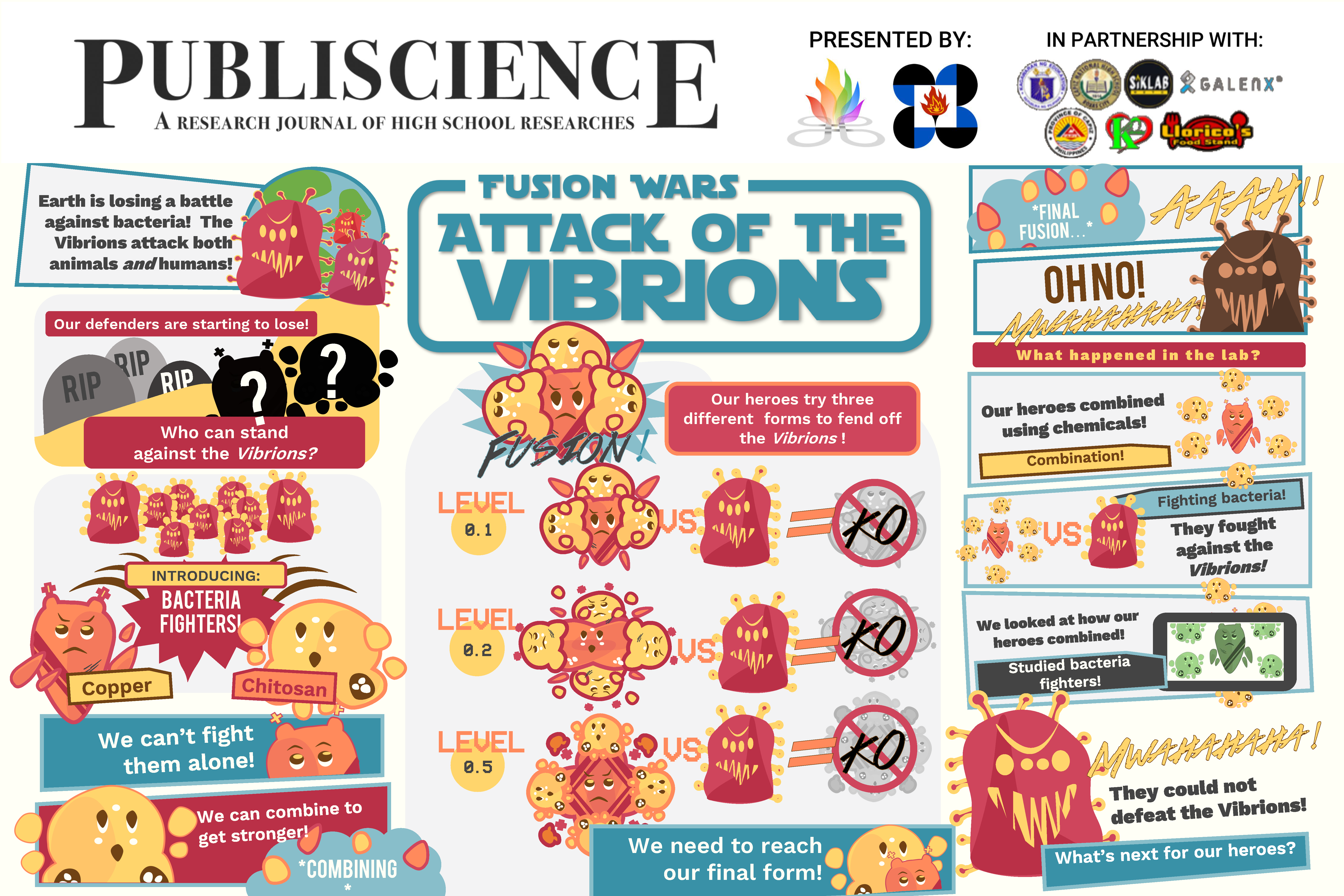Antibacterial activity of copper-chitosan complexes against zoonotic Vibrio parahaemolyticus
HARVEY C. LOQUIAS, REIGEN R. PLACIDO, and HAROLD P. MEDIODIA
Philippine Science High School – Western Visayas Campus, Brgy. Bito-on, Jaro, Iloilo City 5000, Department of Science and Technology, Philippines
Abstract
Copper-chitosan (Cu-Ch) complexes can be used as antibacterial agents against zoonotic microorganism strains. This study assessed the antibacterial activity of Cu-Ch complexes synthesized via a chemical method outlined by Usman et al. [7,8] against zoonotic Vibrio parahaemolyticus using disk diffusion assay. The complexes were characterized using Ultraviolet-Visible (UV-VIS) and Fourier Transform Infrared (FTIR) spectrophotometry. Characterization results indicate the formation of Cu-Ch complexes during synthesis, but not nanoparticles. The synthesized Cu-Ch complexes exhibited no antibacterial activity against Vibrio parahaemolyticus, suggesting that they are ineffective antimicrobials against zoonotic microorganisms. Further studies can look into their antibacterial activity against other types of microorganisms.
Keywords: chitosan, copper, nanocomplexes, Vibrio parahaemolyticus, zoonotic

